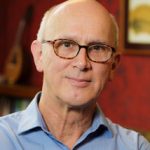
I gave a lecture in Portland — up in the morning, back to San Diego in the afternoon, the entire trip taking only ten hours — and came away with a renewed sense that things are turning around. I was invited by the Archdiocese to participate in a series called “Catholic Apologetics in the Third Millennium.” Talks were geared toward CCD instructors, parish evangelization leaders, and those engaged in adult education.
That a diocese would give such a title to a series is itself a little surprising. Readers of this magazine know that apologetics has been making a comeback over the last decade or two, but most laymen interested in apologetics have had the sense (not entirely unjustified) that dioceses and their departments have been lacking in enthusiasm for this mainly lay-run movement. “Apologetics” has been a word more warmly received, at times, outside the pastoral center than inside.
So it’s refreshing to see a major diocese sponsor a program that is explicitly apologetical. Fr. Michael W. Maslowsky, the director of the Department of Pastoral Services in Portland, was the moving force behind the lecture series. From what I could gather, speaking with attendees and organizers, the talks have been well received — and each has been doctrinally solid. There was no attempt to “balance” the series by having orthodox talks paired with, ah, “other” talks.
I was asked to compare Catholic beliefs with the beliefs of Mormons, atheists, and New Agers. When I received the assignment, I wasn’t sure how to blend such disparate groups. But a little reflection brought the answer: Each engages in a kind of gnosticism. Each claims to have secret knowledge, reserved for initiates, that explains everything.
Mormons don’t share this knowledge with you when they come to your door. They don’t volunteer that they believe in thousands of gods, that their gods are limited in power and knowledge, that dark skin is considered a curse. These beliefs are kept from those being proselytized (even some Mormons don’t know about them) but they are the answers to society’s ills.
Atheists, for their part, claim to be the supreme rationalists. Only they are able to manipulate reason properly. They say that the full use of reason can come only when one abandons any notion of God. What they don’t volunteer — what they probably don’t realize — is that atheism is less an intellectual position than a consequence of mental and moral lapses. It has no answers to life’s problems.
And New Agers? They claim there is no personal God, no individualized soul, no sin (only “mistakes”), and therefore no judgment, heaven, or hell. But there is a hereafter, and it is perpetual, redundant, and cyclical. Through reincarnation, one evolves through higher and higher lives, in each losing a little bad karma, in each coming closer to nirvana-but never quite reaching it. The New Age movement operates through feelings and intuition, not through reflection and ratiocination. For it, the “truth” lies outside the thinking mind.
The Archdiocese of Portland is helping lay leaders see through such fluff. The organizers of the lecture series have taken to heart Pope Leo XIII’s admonition that there is nothing so salutary as to view the world as it really is.


